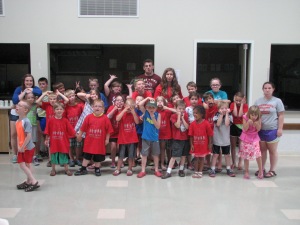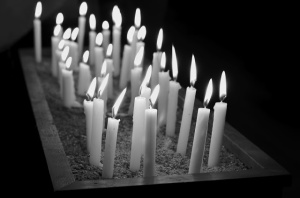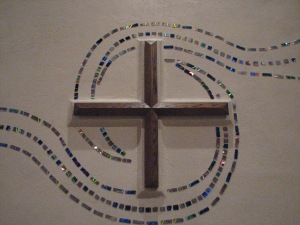Jesus Loves Me this I know
Hearing that song just warms my heart. I could never get tired of hearing children sing that song. In Rachel’s Place chapel, we sing Jesus loves me almost every week. It’s so important because if there is one thing that they will leave here knowing- I want it to be that Jesus loves them. There is nothing else as important as that. Jesus loves you. Your pastors love you. Your teachers love you. Your families love you. You are loved.
You are a child of God.
When our staff brainstormed about what it means to be a child of God, we came up with the following words: loved, cherished, worthy, hopeful, faithful, believer
When we teach our children that they are children of God- we give them a gift. We teach them that God loves them, and we teach them that they are worthy of that love.
There’s a quote I love from one of my favorite bloggers, “Be confident- You are a child of God! Be humble- everyone is too.”
When we raise our children in a faith community we give them the incredible gift of knowing that they are loved- but it does not end there. Rather we teach them that because God first loved us- we in turn love others. When we raise our children in the faith we help them to care about others too. We help them to care about the world.
Our scripture reading today from 1 John 3:1-7
Our Bible reading today marvels at God’s love. God loves us so deeply that we should be called children of God. That is true for each of us. From creation, God created people in God’s image, male and female. To be created in someone’s image seems to be another way of showing that parent/child relationship. We were made in God’s image- to be like God. We are God’s children. John reminds us of this in his letter. He writes to the followers of Jesus, calling them little children of God. But to be born of God spiritually in Jesus- takes it a step further. Every person is a child of God- and yet God calls us to live into this identity. John says that we are children of God when we practice righteousness or when we are fair and just. He puts it another way by saying that we live in the light of Christ when we love our brothers and sisters. (aka all people!)
“We love, because God first loved us.” As our song goes. That Bible verse comes later in John’s letter.
“Beloved, we are God’s children now; what we will be has not yet been revealed.” This is true for all of us, but especially our young children. We do not know what their futures may hold- but we do know what kind of a future we would dream for them.
When are children are little- they can’t get enough time with mom and dad, and grandpa and grandma, aunts and uncles right!? Yet, as they grow older and become more independent how do we continue to care for them and raise them in the faith?
In our confirmation program we do small group time where the youth meet with their group guides and share highs and lows as a part of the FAITH5. It’s a great time to get to know each other and share in each other’s lives. They can really form a great bond doing this. As we were starting to fill out our thank you cards for the group guides this week- I was talking to one of the eighth grade groups. I asked, “Will you sign Julie’s card?” “She’s awesome! We love Julie!” they told me.
Here they have a space to share their lives- with a mentor- another adult teaching them the faith.
If you do not know your child’s highs- you do not know your child.
If you do not know your child’s lows- you do not know your child.
That is what Rich Melheim the founder of the FAITH5 says.
FAITH5 is one of the ways here at Hope that we work to pass on faith to our children and youth. The FAITH5 consists of Share, Read, Talk, Pray, Bless. A nightly ritual at home of sharing highs and lows, reading a scripture verse, talking about how that relates to their lives, praying together, and blessing each other. A simple ritual that fosters communication, helps them apply the Bible to their lives, and reminds them that they are loved by God and by their family. What if these things were done every night with our young people? What if our families committed to being in church every week to gather for support and encouragement? Think of the child that hears that message every day and every week. Now… think of the child that does NOT. We are not helpless in this. We can live lives of purpose and love.
Every night in the home. Every week at church– that’s the mission of the FAITH5- and really our mission at Hope too. Together we can raise our children in the faith- we can teach them the stories of God, we can teach them that they are loved and they are children of God. We can partner with families to teach our children how much they are love by Jesus and by others.
One day after having my own kids, I was talking to my mom and I asked her, “how did your kids turn out so well?” She is the mom of 4, and did a great job raising us. We all still love coming home.
She looked at me and said, “Time. We gave you our time. There are no shortcuts.”
Families these days don’t always have an abundance of time, and that is why the time that you have together is precious. Fill those precious moments with love- invest in your children.
We can say the same for all of our relationships. There is no substitute for quality time together. Sometimes it takes a risk, to step out and share love with those in our lives. But it is worth it.
Check out the FAITH5 website for more great resources! http://faith5.org/







